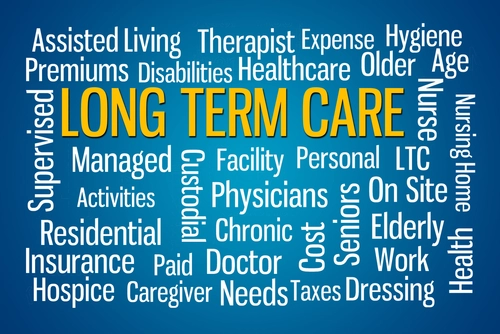Don't Bill CCM for Inpatients, Unless You Meet This Exception

CMS reps finally shed further light on new code 99490.
The last time CMS staff members addressed the new-for-2015 code 99490 (Chronic care management…), they said they’d share more information later in a comprehensive document. Fortunately, the agency lived up to that promise, and delivered answers to several of the most frequently-asked CCM questions during a May 13 CMS Physicians Open Door Forum.
“In response to inquiries we received about billing for chronic care management, we recently posted a list of FAQs on the CMS website,” said CMS’s Twi Jackson during the call. He explained a few of the highlights from the document in-depth during the call, and offered additional tips, which you should check out if you want to ensure you’re billing this new service properly.
You Can Initiate CCM During AWV
One of the biggest questions that Part B practices had about 99490 was whether the CCM service could be initiated during an annual wellness visit (AWV) or an initial preventive physical exam (IPPE). Fortunately, the answer is yes, Jackson said.
“The code addresses 20 minutes of chronic care management services per calendar month,” he noted. “It is for beneficiaries with two or more chronic conditions expected to last at least 12 months or until the death of the patient. CPT® 99490 is a physician-directed service and must be initiated by the billing practitioner during a comprehensive E/M visit, which also includes an annual wellness visit (AWV) or the initial preventive physical exam (IPPE),” he added.
In addition, most of your clinical staff members can perform the CCM service. “A physician, nurse practitioner, physician assistant, clinical nurse specialist or certified nurse midwife, subject to state licensure and scope of practice, is eligible to bill 99490 directly or when qualifying clinical staff furnish the CCM services incident to the practitioners,” Jackson said. “A hospital may bill when the hospital clinical staff furnishes the CCM service at the direction of a qualified practitioner. Qualifying clinical staff is defined by the Fee Schedule’s incident to rules, as well as the CPT® definition of clinical staff.”
Report It Whether Face-to-Face Occurs Or Not
Unlike standard E/M codes, you don’t necessarily have to see the patient face-to-face to report 99490, Jackson said. “While CCM is not typically furnished face to face, the time spent furnishing the elements of the CCM service face-to-face can be counted toward the 20 minute minimum,” Jackson said. “Also, time spent by the billing practitioner directly providing the CCM service does count toward the 20 minute minimum per calendar month service period.”
Inpatient, SNF exception: Keep in mind that you shouldn’t be reporting 99490 for inpatients unless you meet one rare exception, Jackson said. “99490 cannot be billed for SNF inpatients or hospital inpatients because the facilities are already currently being paid for care planning and care coordination,” Jackson advised. However, “Time spent furnishing CCM services to patients while they are not inpatients during that calendar month can be counted toward the 20 minute minimum required to bill the code,” he added.
No TCM/CCM Combos: You cannot report 99490 the same month as transitional care management (TCM, 99495-99496) “unless the 30 day transitional care management service period ends before the end of a given calendar month and at least 20 minutes of CCM services are subsequently provided during that same month,” Jackson said.
You also can’t report CCM with home health care supervision code G0181, hospice care supervision code G0182, or ESRD codes 90951-90970, he added.
Resource: To read the CCM FAQs that Twi Jackson referenced during the call, visit www.cms.gov/Outreach-and-Education/Medicare-Learning-Network-MLN/MLNMattersArticles/Downloads/SE1516.pdf.




